Crimea annexation: Putin admits sanctions 'damaging'
- Published
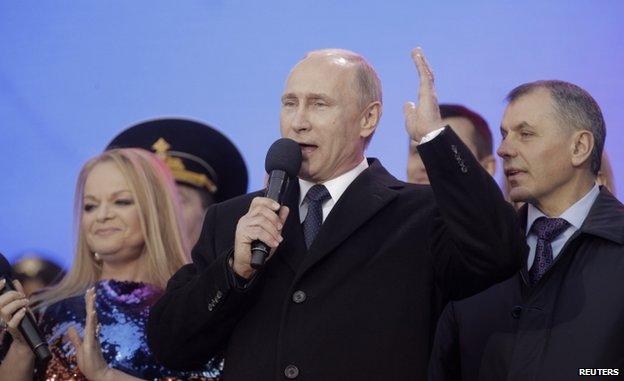
Mr Putin told a crowd outside the Kremlin that Ukrainians and Russians were "one people"
On the anniversary of Russia's annexation of Crimea from Ukraine, Russian President Vladimir Putin has acknowledged the harm caused by Western sanctions.
He said the measures, imposed on individuals and key economic sectors, external, were "not fatal, but naturally damage our ongoing work," Interfax reported.
Thousands of Russians gathered for celebrations outside the Kremlin.
The future of the sanctions is set to be discussed by EU leaders this week.
European Council President Donald Tusk will push for the measures to be linked explicitly to full implementation of the Ukraine ceasefire deal agreed in Minsk, Belarus, last month, a senior EU official has told the BBC.
Mr Tusk wants the sanctions maintained until the end of the year, when Ukraine is supposed to regain control of its eastern border from pro-Russian rebels under the truce conditions, external.
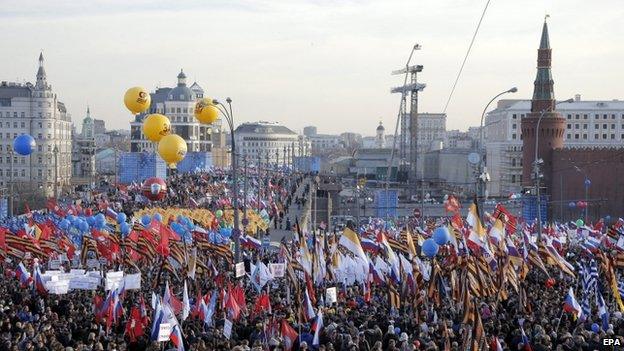
A large crowd enjoyed a concert outside the Kremlin celebrating the anniversary of the annexation
Crimea was taken over shortly after months of protests had led to the downfall of Ukraine's President Viktor Yanukovych.
Within weeks, pro-Russian rebels had taken over cities in eastern Ukraine sparking a conflict with Ukrainian armed forces that has led to more than 6,000 deaths and the displacement of some 1.1 million people, according to the UN, external.
'One people'
To chants of "Russia, Russia", Mr Putin told the crowd outside the Kremlin, estimated to be greater than 100,000 by state-run media, that Russians and Ukrainians were "one people".
He blamed the February 2014 revolution in Kiev on extreme nationalism and hoped normal relations with Ukraine would soon resume. Russia would "of course overcome all the problems and difficulties they try to impose on us from outside", he said.
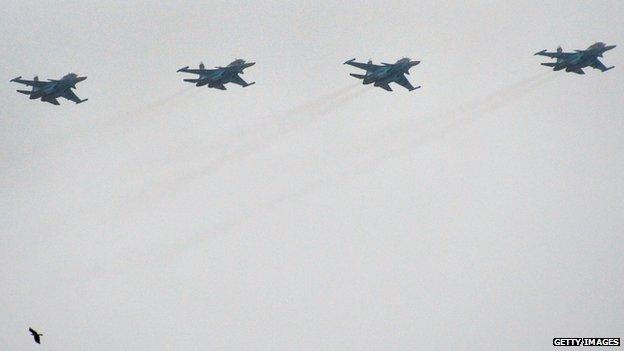
Russian Su-34 fighters were intercepted over the Baltic Sea amid an increase in Russian military drills
Earlier, Mr Putin signed a deal that further cements Russian control over the breakaway Georgian region of South Ossetia.
The "alliance and integration" treaty, agreed with South Ossetian leader Leonid Tibilov, brings the region's military and economy into line with Russia.
Russia went to war with Georgia in 2008 and declared both South Ossetia and another region, Abkhazia, as independent states. Abkhazia signed a similar integration treaty last year.
Nato condemned the deal as a violation of Georgia's sovereignty and territorial integrity while Georgia said it was a "de facto annexation".
In a sign of continuing tensions between Russia and the West, Lithuanian authorities said eight Russian fighter jets had been intercepted over international waters in the Baltic Sea by a Nato patrol.
A Lithuanian spokeswoman said civil aviation had been endangered during Tuesday's incident because the Su-27 and Su-34 planes had switched off their transponders to avoid radar.
Russia's military is conducting widespread military exercises at the moment, with an estimated 76,000 troops involved in drills in the Arctic and separate drills taking place in its Kaliningrad enclave, which borders Lithuania.
- Published15 March 2015
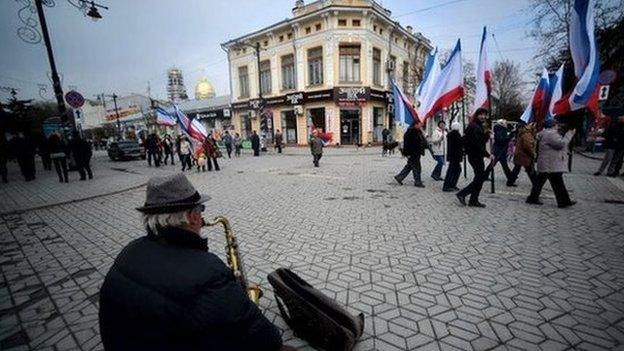
- Published18 March 2015
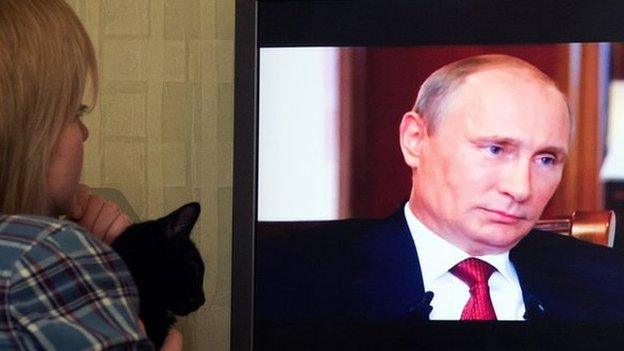
- Published6 March 2015